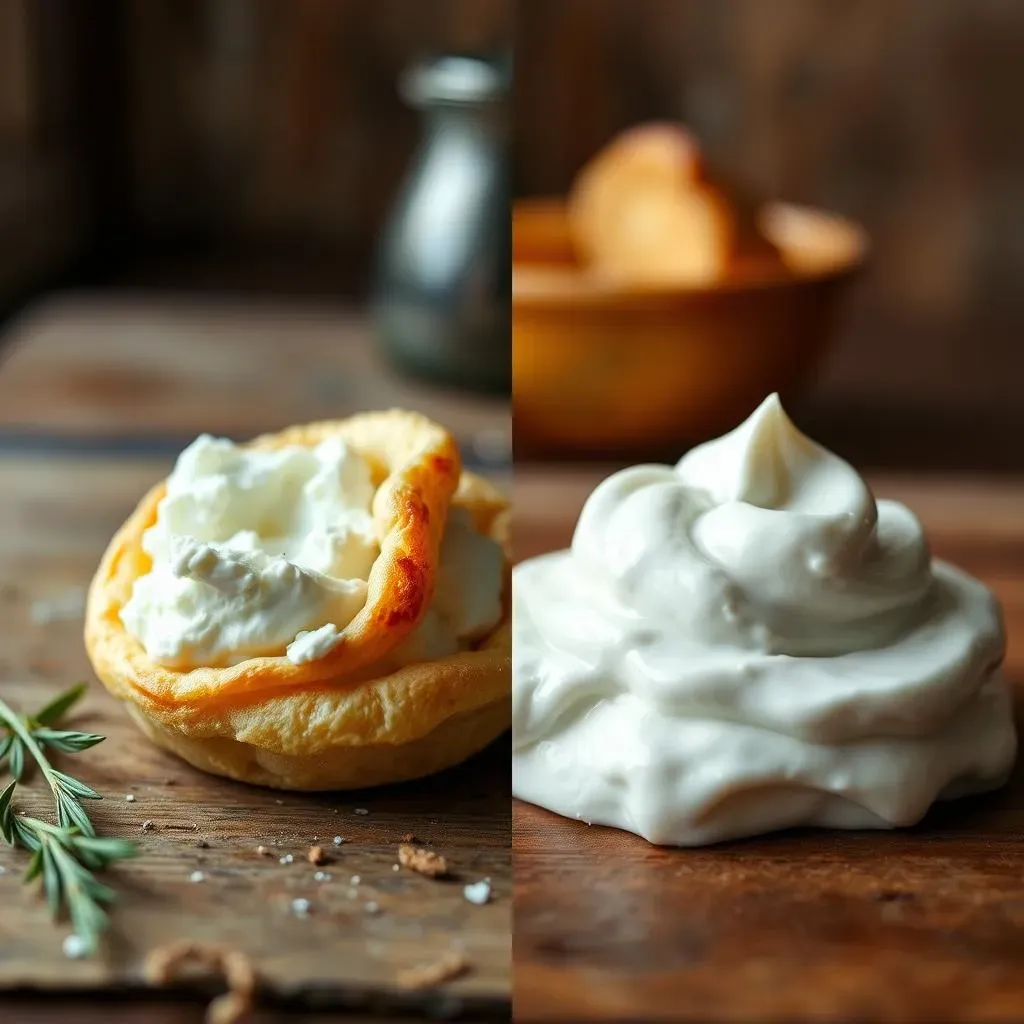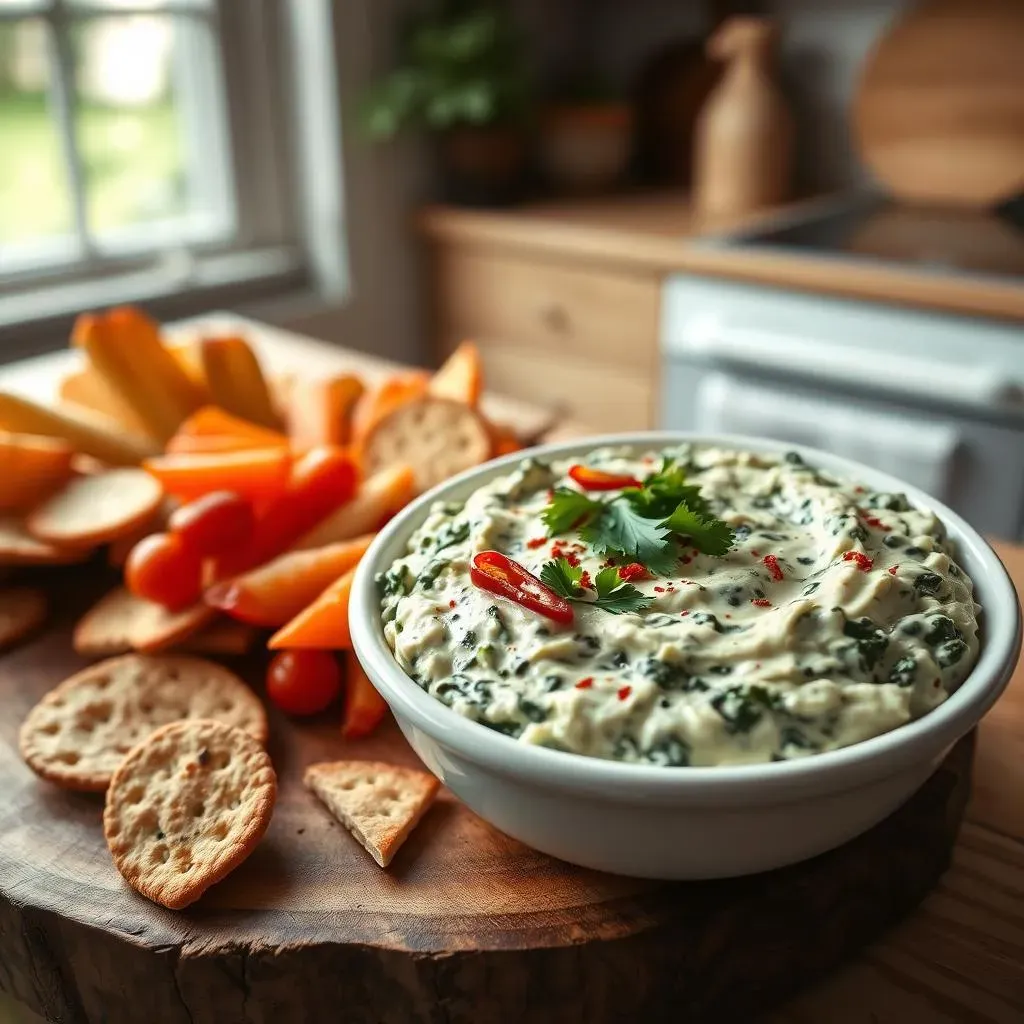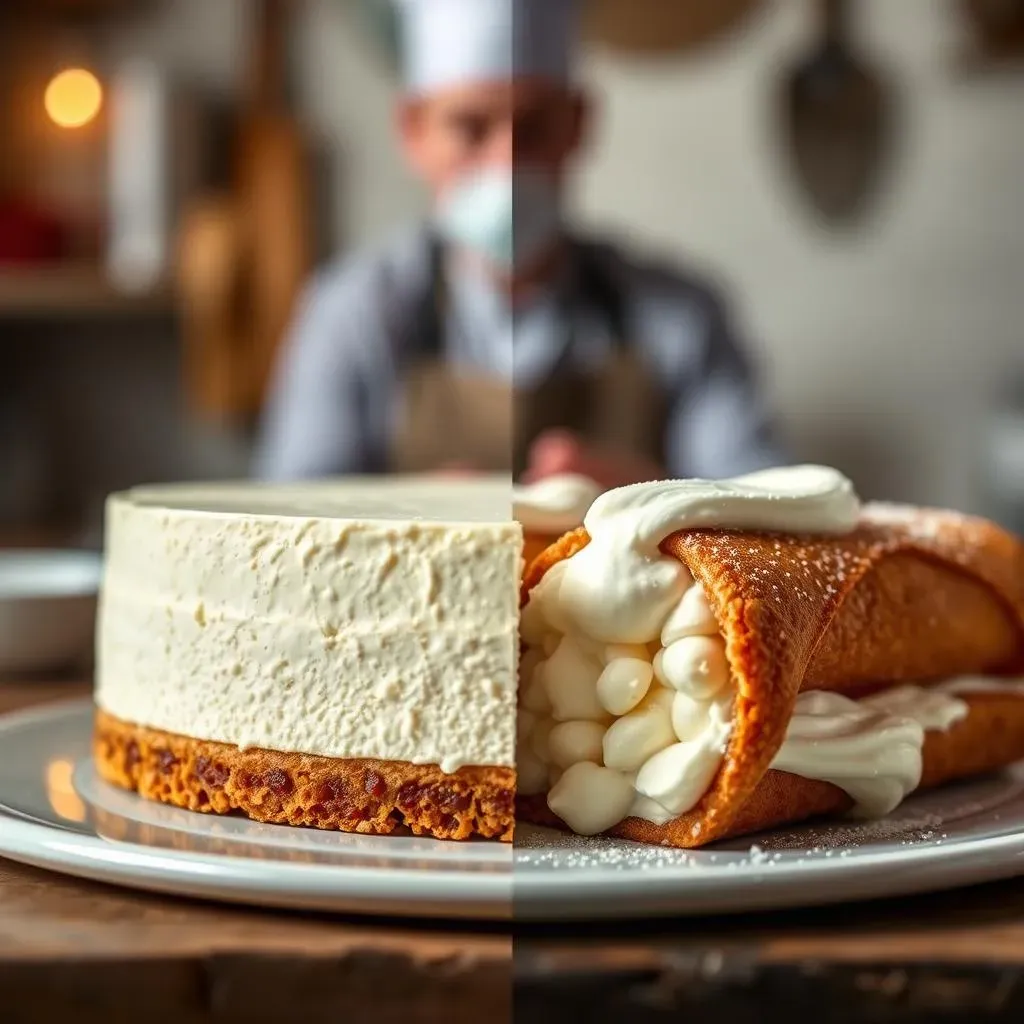Table of Contents
Ever stared blankly at a recipe, realizing you're missing a key ingredient—like ricotta cheese? Don't panic! This article tackles the burning question: can you substitute sour cream for ricotta cheese? We'll explore the nuances of this substitution, examining the critical differences in texture and taste between these two dairy products. Understanding these differences is key to successfully swapping one for the other. We'll then dive into practical examples, showing you exactly how to use sour cream as a ricotta substitute in various recipes, and we'll even highlight instances where this substitution simply won't work. By the end, you'll have a clear understanding of when this swap is a culinary win and when it's best to stick with the original ingredient. So, let's unravel the mysteries surrounding "can you substitute sour cream for ricotta cheese" and empower you to confidently navigate your next cooking adventure!
Can Sour Cream Replace Ricotta? Texture and Taste Differences

Can Sour Cream Replace Ricotta? Texture and Taste Differences
Texture Showdown: Ricotta vs. Sour Cream
Let's talk textures. Ricotta, a fresh cheese, has a wonderfully soft, almost creamy, yet slightly grainy texture. Think of it as a fluffy cloud—it's delicate and spreads easily. Sour cream, on the other hand, is smooth and tangy. It's thicker than ricotta, but it's still pourable. Imagine the difference between a fluffy omelet and a dollop of thick yogurt. That's the kind of textural contrast we're dealing with here.
The difference is significant. In recipes where ricotta's delicate texture is crucial, like in delicate pastries or light pasta fillings, sour cream will create a noticeably different mouthfeel. It'll be heavier, less airy, and might even be a little too tangy for the dish.
Characteristic | Ricotta | Sour Cream |
|---|---|---|
Texture | Soft, slightly grainy, creamy | Smooth, thick, pourable |
Mouthfeel | Delicate, airy | Creamy, heavier |
Taste Test: Tangy vs. Mild
Now, let's discuss taste. Ricotta has a mild, almost milky flavor. It's subtle and won't overpower other ingredients. It's like a blank canvas, ready to absorb the flavors of herbs, spices, and other additions. Sour cream, conversely, boasts a distinctly tangy flavor. This tartness can be delightful in certain dishes, but it can also clash with or overpower more delicate ingredients.
Imagine adding sour cream to a delicate lemon tart versus ricotta. The tartness of the sour cream might compete with the lemon, creating an unbalanced flavor profile. Ricotta, on the other hand, would blend seamlessly with the lemon, enhancing its brightness rather than overpowering it. The subtle sweetness of ricotta will also make it a better choice for desserts.
- Ricotta: Mild, milky flavor
- Sour Cream: Tangy, tart flavor
Using Sour Cream as a Ricotta Substitute in Recipes

Using Sour Cream as a Ricotta Substitute in Recipes
Savory Swaps: Where Sour Cream Shines
While not a perfect match, sour cream can surprisingly work well in some savory dishes where ricotta is called for. Its tangy flavor adds a unique twist, especially in recipes that already incorporate strong flavors. Think creamy dips, sauces for vegetables, or even as a component in certain savory baked goods. The key is to adjust the amount of sour cream used, potentially reducing the quantity to account for its thicker consistency and stronger taste. Remember to taste and adjust as you go!
For instance, in a spinach and artichoke dip, sour cream can offer a tangy counterpoint to the richness of the cheese and artichokes. It might even be preferable to ricotta in this context, providing a more vibrant flavor profile. However, it's crucial to note that the final product will have a different texture than one made with ricotta.
Recipe | Sour Cream Adjustment | Flavor Impact |
|---|---|---|
Spinach and Artichoke Dip | Reduce quantity slightly | Adds tangy brightness |
Savory Muffins | Reduce quantity, add extra moisture | Creates a richer, denser muffin |
Sweet Successes (With Caution): Sour Cream in Desserts
Using sour cream as a ricotta substitute in desserts is a riskier proposition. Ricotta's mildness and slightly grainy texture lend themselves beautifully to cakes, cheesecakes, and other sweet treats. Sour cream's tanginess can clash with delicate flavors or create an unexpectedly tart dessert. However, in certain recipes with strong flavors like citrus or chocolate, a small amount of sour cream can add a delightful tangy note.
For example, a chocolate cheesecake might benefit from a small addition of sour cream to balance the richness of the chocolate. But proceed with caution! Start with a much smaller amount than the ricotta would call for, and taste frequently to avoid an overly sour result. Remember, a little goes a long way when it comes to sour cream's tang.
- Cheesecakes (Dark chocolate varieties): A small amount can enhance richness.
- Citrus cakes: Use sparingly, as tanginess may clash.
- Cookies: Generally not recommended.
Important Considerations: Texture and Moisture
When substituting sour cream for ricotta, always consider the impact on texture and moisture. Sour cream is thicker and less airy than ricotta. This means that you may need to adjust the amount of liquid in your recipe to compensate for the differences in consistency. In some cases, you might even need to add extra liquid to prevent the final product from being too dense or dry.
Additionally, keep in mind that sour cream's tangy flavor will impact the overall taste of your dish. If you're working with a recipe that features delicate flavors, it might be best to avoid this substitution altogether. Experimentation is key! Start with small amounts of sour cream to gauge its impact before committing to a full substitution. Taste testing is your best friend in this culinary adventure.
"Don't be afraid to experiment, but always start small and taste as you go!" - Anonymous Baking Enthusiast
When to Avoid Substituting Sour Cream for Ricotta Cheese

When to Avoid Substituting Sour Cream for Ricotta Cheese
Delicate Desserts: Where Ricotta Reigns Supreme
Let's be honest, some desserts simply demand the delicate nature of ricotta. Think airy cheesecakes, light and fluffy pastries, or delicate Italian desserts like cannoli. Sour cream's heavier texture and tangy flavor would completely overwhelm these creations. The result? A dense, overly tart disaster that bears little resemblance to the intended treat. The subtle sweetness and creamy texture of ricotta are essential for achieving the desired lightness and delicate flavor profiles in these recipes.
In these cases, sticking with ricotta is not just preferred, it's essential. Substituting sour cream would fundamentally alter the texture and taste, resulting in a disappointing final product. The delicate balance of flavors and textures in these desserts is too easily disrupted by the bolder characteristics of sour cream.
Dessert Type | Why Ricotta is Essential | Sour Cream Impact |
|---|---|---|
Cheesecake | Creates a light, airy texture | Makes it dense and overly tart |
Cannoli Filling | Provides a creamy, delicate sweetness | Overpowers other flavors, creates a heavy texture |
Pastries (e.g., croissants) | Contributes to a soft, flaky texture | Results in a dense, heavy pastry |
Recipes Emphasizing Subtlety: A Sour Cream No-Go
Certain recipes rely on the subtle, almost neutral flavor of ricotta to let other ingredients shine. Dishes where herbs, spices, or other delicate flavors play a starring role are prime examples. The tanginess of sour cream would clash with these subtle notes, creating a jarring and unbalanced flavor profile. Ricotta's mildness allows the other ingredients to take center stage, creating a harmonious and balanced taste experience.
Think of a delicate pasta dish with fresh herbs and a light lemon sauce. Adding sour cream would introduce an unwanted tartness that would overpower the delicate herbs and lemon. Ricotta, in this context, would enhance the dish's overall flavor and texture without competing with the other ingredients. The same principle applies to many other recipes that feature subtle flavors and require a neutral base to create a well-balanced and delicious dish.
- Pasta dishes with delicate sauces
- Dishes featuring fresh herbs
- Recipes with subtle spice blends
When Texture is Paramount: Ricotta's Irreplaceable Role
Finally, there are situations where the texture of ricotta is simply irreplaceable. In recipes where the cheese's soft, slightly grainy texture is integral to the dish's overall structure and mouthfeel, sour cream is a poor substitute. This is particularly true in recipes where the ricotta contributes to the overall texture of the final product, such as in certain types of ravioli or stuffed pasta. The difference in texture is significant enough to alter the eating experience considerably.
Imagine a delicate ravioli filling. Ricotta's soft, yielding texture contributes to the overall pleasant mouthfeel. Sour cream, with its denser consistency, would make the ravioli heavy and less enjoyable to eat. The same is true for many other dishes where the texture of the ricotta is a key component of the overall culinary experience. In these cases, there's really no acceptable alternative.
"Sometimes, the best choice is to stick with the original ingredient. Don't be afraid to adjust your plans if necessary." – Experienced Home Cook